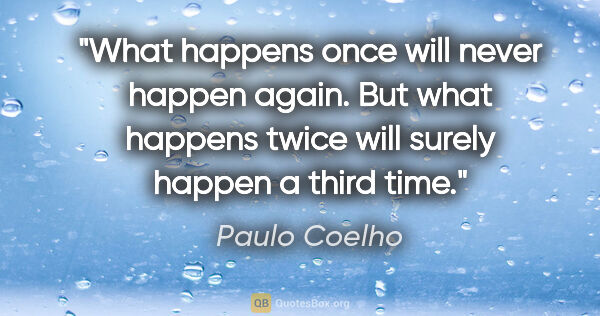Sure Quotes (page 30)
Now as to magic. It is surely absurd to hold me “weak” or otherwise because I choose to persist in a study which I decided deliberately four or five years ago to make, next to my poetry, the most important pursuit of my life…If I had not made magic my constant study I could not have written a single word of my Blake book [The Works of William Blake, with Edwin Ellis, 1893], nor would The Countess Kathleen [stage play, 1892] have ever come to exist. The mystical life is the center of all that...
William Butler Yeats
It is clear that men accept an immediate pain rather than an immediate pleasure, but only because they expect a greater pleasure in the future. Often the pleasure is illusory, but their error in calculation is no refutation of the rule. You are puzzled because you cannot get over the idea that pleasures are only of the sense; but, child, a man who dies for his country dies because he likes it as surely as a man eats pickled cabbage because he likes it.
W. Somerset Maugham
Let us begin this letter, this prelude to an encounter, formally, as a declaration, in the old-fashioned way: I love you. You do not know me (although you have seen me, smiled at me). I know you (although not so well as I would like. I want to be there when your eyes flutter open in the morning, and you see me, and you smile. Surely this would be paradise enough?). So I do declare myself to you now, with pen set to paper. I declare it again: I love you.
Neil Gaiman
I am convinced that imprisonment is a way of pretending to solve the problem of crime. It does nothing for the victims of crime, but perpetuates the idea of retribution, thus maintaining the endless cycle of violence in our culture. It is a cruel and useless substitute for the elimination of those conditions--poverty, unemployment, homelessness, desperation, racism, greed--which are at the root of most punished crime. The crimes of the rich and powerful go mostly unpunished. It must surely...
Howard Zinn

The world - whatever we might think when terrified by its vastness and our own impotence, or embittered by its indifference to individual suffering, of people, animals, and perhaps even plants, for why are we so sure that plants feel no pain; whatever we might think of its expanses pierced by the rays of stars surrounded by planets we've just begun to discover, planets already dead? still dead? we just don't know; whatever we might think of this measureless theater to which we've got reserved...
Wislawa Szymborska
I felt suddenly that 'this sort of thing' would kill me. The definition of the cause was vague, but the thought itself was no mere morbid artificiality of sentiment but a genuine conviction. 'That sort of thing' was what I would have to die from. It wouldn't be from the innumerable doubts. Any sort of certitude would be also deadly. It wouldn't be from a stab—a kiss would kill me as surely. It would not be from a frown or from any particular word or any particular act—but from having to bear...
Joseph Conrad
It is all very well, in these changing times, to adapt one's work to take in duties not traditionally within one's realm; but bantering is of another dimension altogether. For one thing, how would one know for sure that at any given moment a response of the bantering sort is truly what is expected? One need hardly dwell on the catastrophic possibility of uttering a bantering remark only to discover it wholly inappropriate.
Kazuo Ishiguro
An atheist is someone who is certain that God does not exist, someone who has compelling evidence against the existence of God. I know of no such compelling evidence. Because God can be relegated to remote times and places and to ultimate causes, we would have to know a great deal more about the universe than we do now to be sure that no such God exists. To be certain of the existence of God and to be certain of the nonexistence of God seem to me to be the confident extremes in a subject so...
Carl Sagan

Property breeds lawyers, I said, forbearing to add a belief that unfortunately property now seemed the only thing palpable enough to demand the respect of governments, and perhaps was the generating clout against encroachments on the spiritual protections for speech, assembly, and so on. It might turn out that without the right to possess we are not sure we really have the right to speak and to be.
Arthur Miller
